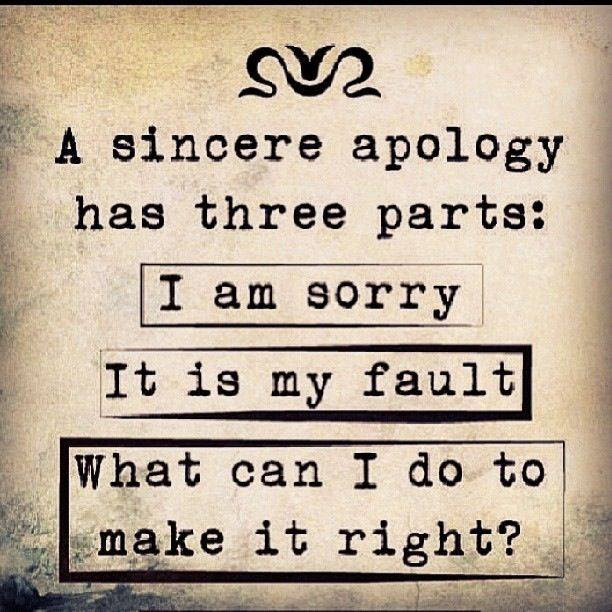Search results ({{ res.total }}):
Making amends = betten mechila
Made direct amends to such people wherever possible, except when to do so would injure them or others. --Step Nine
It is customary to ask forgiveness (mechila) on Erev Yom Kippur from those whom we may have hurt in the past year. The rationale being that G-d only forgives the transgressions made against Him, but He will not forgive offenses against other human beings if the offended person does not forgive.
Here is a take on asking for forgiveness (making amends):
It is customary to ask forgiveness (mechila) on Erev Yom Kippur from those whom we may have hurt in the past year. The rationale being that G-d only forgives the transgressions made against Him, but He will not forgive offenses against other human beings if the offended person does not forgive.
Here is a take on asking for forgiveness (making amends):
When we make amends we need to be clear about what we're apologizing for and the best way to say we're sorry. What we are really doing with our amends is taking responsibility for our behavior. We need to be sure that the process itself will not be self-defeating or hurtful.
Sometimes, we need to directly apologize for a particular thing we have done or our part in a problem. Other times, instead of saying I'm sorry, what we need to do is work on changing our behavior with a person.
There are times when bringing up what we have done and apologizing for it will make matters worse.
We need to trust timing, intuition, and guidance in this process of making amends. Once we become willing, we can let go and tackle our amends in a peaceful, consistent, harmonious way. If nothing feels right or appropriate, if it feels as if what we are about to do will cause a crisis or havoc, we need to trust that feeling.
We deserve to be at peace with ourselves and others.
Today, I will be open to making any amends I need to make with people. I will wait for Divine Guidance in the process of making any amends that are not clear to me. God, help me let go of my fear about facing people and taking responsibility for my behaviors. Help me know I am not diminishing my self-esteem by doing this; I am improving it.